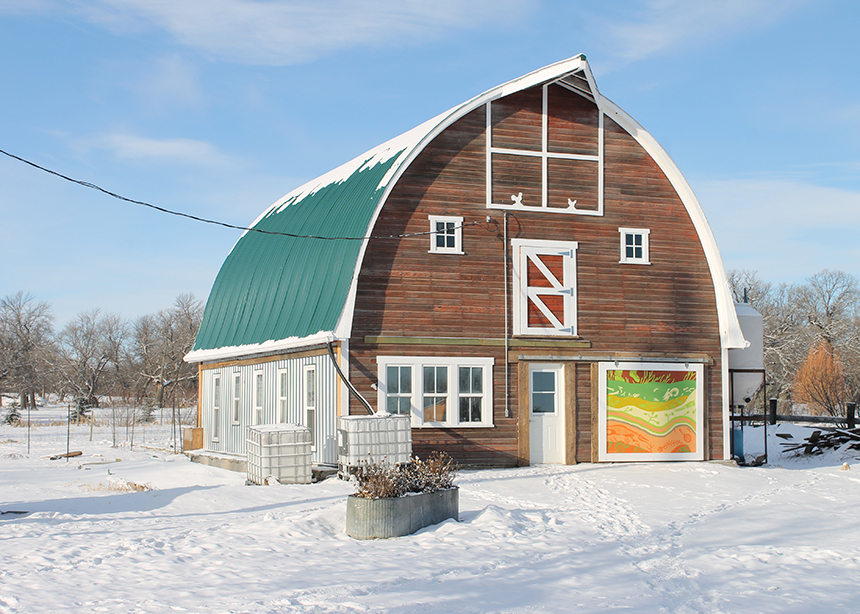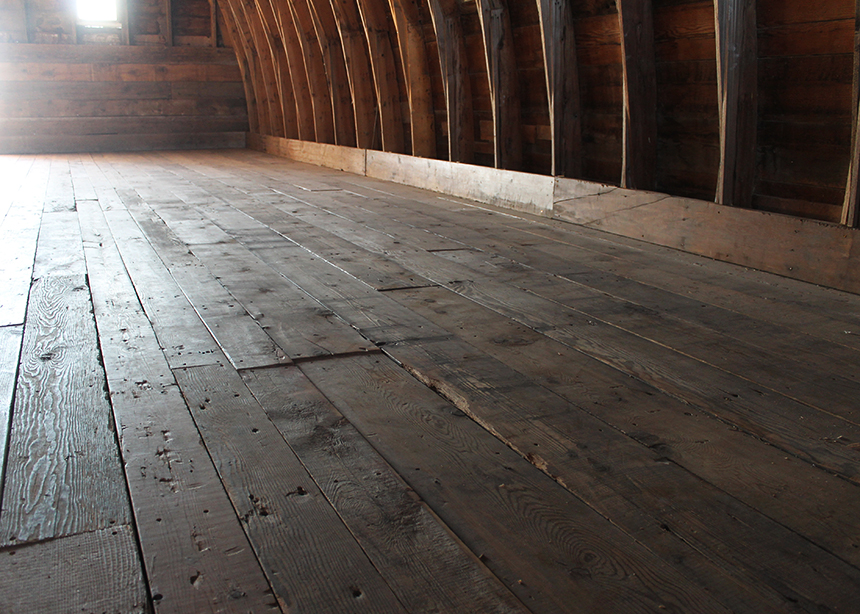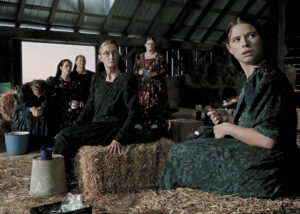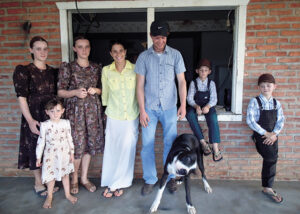I prefer books and sky to screens and Hollywood, but the fact that kerchief-clad colony women will appear on-screen at Hollywood’s biggest event creates a moment of opportunity for our church.
The film adaptation of Miriam Toews’ novel, Women Talking, is nominated for Best Picture at the March 12 Academy Awards. For me, the film evokes valuable questions about sexual violence, faith, colony women, progress and how we view our colony cousins.
The book and film use as a starting point the so-called ghost rapes which involved mass serial rape on the Manitoba Colony in Bolivia, something I was researching and writing about when the book came out in 2018. Wilmar Harder, who has much experience with colonies, asked me: “Who tells the story and why?” I concluded that if I was not willing to humbly learn from colony Mennonites I should keep quiet.
The film’s director, Sarah Polley, sidesteps this by treating the film as “fable.” Her characters—who spend two days in a hayloft discussing how to respond to their hellish situation—are both Mennonite and not.
While the film plot deviates from actual events, the widespread rape was real. Men do horrific things to women, and whether in war zones, Hollywood, reserves or religious enclaves, perpetrators are held to account in only a tiny fraction of cases. What I see in the film and the responses I have heard is an immense, largely hidden pool of unresolved female woundedness, along with a power in openly grappling with it. The film resonates mightily in the collective hayloft, including in our branch of Mennonitism. Women have much to talk about—much that would not be expressed on Sunday morning or in mixed company.
In Women Talking, faith is integral to struggle and healing. While Toews and Polley insert much of their own ways of thinking into the characters, they fully allow for faith. And it is actual faith—believing in things unseen, not just subscribing to a set of principles. The women contend with forgiveness in the context of Christianity. They seek divine guidance. They find solace in scripture. It’s beautiful, and all from a writer who describes herself as a “secular Mennonite.”
In a famous TED Talk, Nigerian writer Chimamanda Adichie warns against “the danger of a single story,” of solidifying impressions based on a lone narrative. This in mind, I add to the film’s story of Mennonites the many accounts I have heard of welcome, neighbourliness and contentment on colonies. I add the story of a Manitoba Colony leader weeping over the rape saga. I also add stories of dysfunction well beyond that explored by Toews.
Then I add the story of Circles of Support and Accountability, a case in which Mennonites have done courageous and creative work to rehabilitate sexual offenders and reduce sexual assault. These multiple narratives compliment rather than negate one another.
As Jean Friedman-Rudovsky notes, the story of the actual women of Bolivia has been largely lost on the way to the red carpet. A woman from B.C. called me recently to ask, tearfully: “What about the women of Bolivia?” Conclusive information is not available, but a credible contact told me he had spoken with a colony leader in February and was told there have been no similar cases for several years. Still, no one claims those colonies are without serious challenges.
I have learned from Mennonite elders both to value art and listen to those who have left the church. Though every message and messenger are imperfect, our church will be better for listening to Toews, as well as to the many others who might need a hayloft meeting. While I have critiqued Toews’ approach to colony Mennonites, we have much to learn from her, as we do from colony Mennonites themselves, whose very lives constitute a rebuke of our blind acceptance of the individualized, highly consumptive, tech-addicted, anti-agrarian ways of the world.
Fittingly, in the week I saw Women Talking, I was completing restoration of the old hayloft on our farm. Built by conservative Mennonites, it is a place where men have worked, children played and barn swallows tended their young. My wife and I are now considering a potential new use for the kindly old loft, given all that Mennonite women in our area have to talk about.
Will Braun welcomes feedback at editor@canadianmennonite.org.
Related stories:
Film review: sorrow, joy, anger and faith
What about the women of Manitoba Colony?
Barns and kerchiefs: The Mennonites behind the scenes of ‘Women Talking’
Read more editorials:
The evangelical edge
Peace and popularity
The holy paradox of modern Mennonite identity
Tuning out of Advent
2,000 years later in Bethlehem . . .









Leave a Reply
You must be logged in to post a comment.